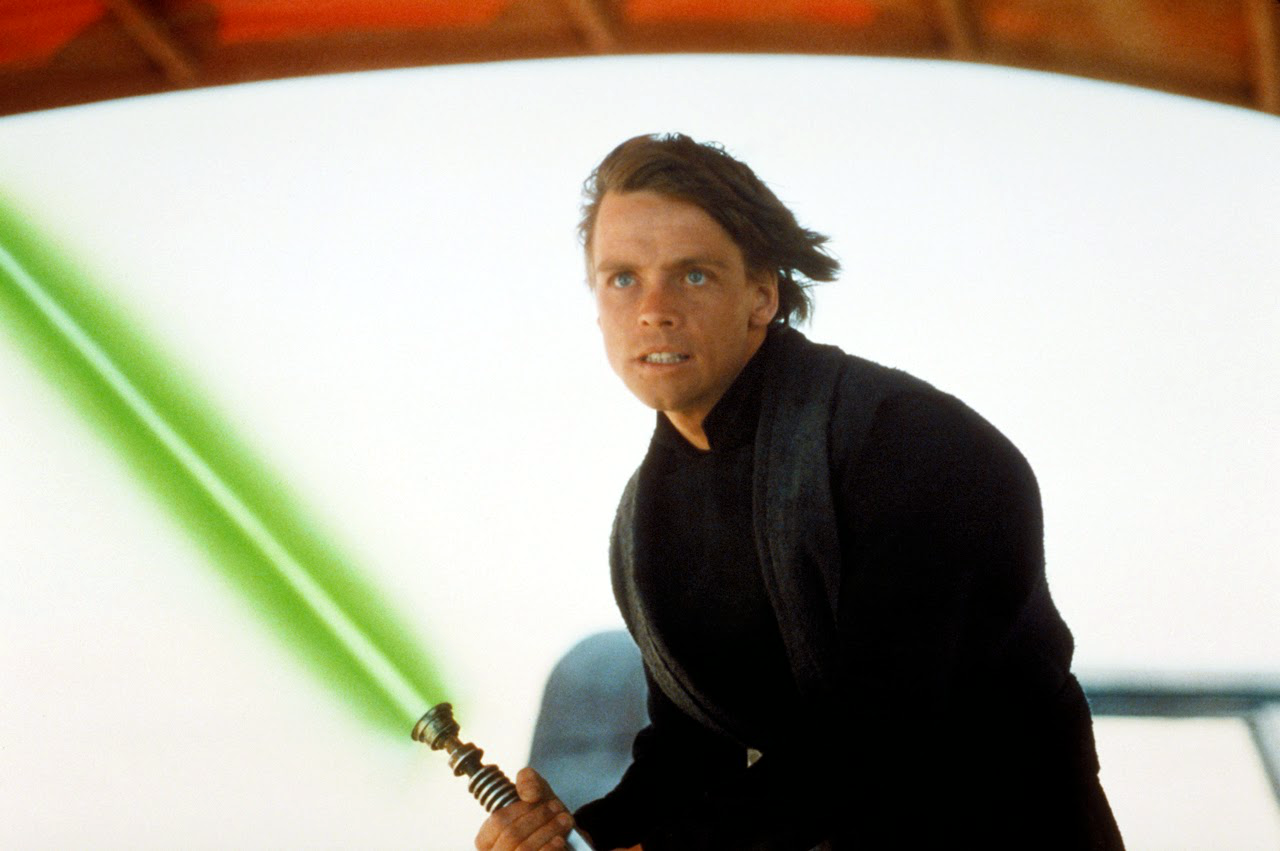Star Wars as the Story of Luke Skywalker's Terrorist Radicalization
Arguing about politics is part of what makes Star Wars fandom so much fun.

Is Star Wars really the story of young Luke Skywalker's terrorist radicalization?
A new piece at Decider by pseudonymous Internet Person Comfortably Smug (@ComfortablySmug) makes a strangely compelling case that the original trilogy is largely the story of a young man's journey from innocent farmboy to radical anti-imperial terrorist fighter.
Here, for example, is how the piece describes Luke's initial encounter with Obi Wan Kenobi, his mentor and counselor in the first film:
Obi Wan — a religious fanatic with a history of looking for young boys to recruit and teach an extreme interpretation of the Force — is practically salivating when he stumbles upon Luke, knowing he's found a prime candidate for radicalization.
And here's the riff on Luke's training with Yoda during the second act of Empire Strikes Back:
Yoda accepts Luke into his religious "school," teaching Luke Jedi fundamentalism and guerilla warfare. Like many extremist mullahs, Yoda demands total adherence to his strict interpretation of the Force and seeks to strip Luke of independent thinking. Yoda's push to radicalize Luke, rob him of an identity, and instill obedience are apparent when at various points he instructs Luke to "Clear your mind of questions," "Unlearn what you have learned" and, most grimly, "Do, or do not, there is no try." The Jedi know it is imperative to force mindless devotion in warriors they recruit for their holy war. Armed with new combat training and cloaked in a hardline religious fervor, Luke leaves Dagobah, impatient to put his terror training to use.
Like all such exercises—including Jonathan Last's case for the Empire in The Weekly Standard, and the more recent defense of the destruction of Alderaan by the Washington Free Beacon's Sonny Bunch—the piece is at least somewhat tongue in cheek, but it's a good a reminder that, despite its pop frivolity, Star Wars is an intensely political story, one that draws explicitly from foreign policy history and the particular political climate in during which it was made.
That goes for the series' stark visuals, which clearly riff on Nazi iconography during World War II; imagery from the trailers suggests an even stronger link in The Force Awakens, and director J.J. Abrams has confirmed that villains in the new film are based at least in part on thought-experiments about what might have happened had a Nazi remnant continued after World War II.
Even the giant space battles during the original series called back to that war; Lucas pushed the special effects team at Industrial Light and Magic to copy the sorts of angles and aerial acrobatics seen in old World War II dog fight films.
And then, of course, there is the Battle of Endor in Return of the Jedi, which pits low-tech Ewoks against the powerful, advanced weaponry of the Empire. In the 1983 PBS documentary From Star Wars to Jedi, Lucas says that this battle was inspired by his work on another project about the Vietnam War.
"One of the more fascinating aspects of that project," he says, "was the human spirit, the human element, being able to withstand an onslaught of high technology—and how the high technology had failed." Lucas isn't exactly making a clear political statement here, but he's pulling from the political events that defined his time, and using them as fodder for his sci-fi mythmaking.
That would continue in the prequel trilogy that ran from 1999 through 2005; the first entry, The Phantom Menace, opens with reference to an ongoing interplanetary trade dispute (how's that for an exciting opener?), and the third film the trilogy, Revenge of the Sith, seemed at times like an extremely loose allegory for the George W. Bush presidency and the Iraq war.
As I said, it's all fairly political, and recognizes that politics are inevitably part of human affairs, but that's not to say that Star Wars is designed to make a straightforward, unambiguous political statement. For the most part, the series does not insist on any particular political point or ideology. Instead, it offers a broad template onto which multiple ideas and interpretations can be applied, mixing and matching various cultural and political influences in order to help build out its world and tell its story in a way that allows for a wide variety of arguments and interpretations—as well as the possibility of enjoyment without thinking much about politics at all.
That variability is part of what's allowed the series to become such a prominent cultural artifact, and allowed so many people to adopt it as their own, including politicians themselves.
Just as Star Wars has always engaged with politics, politicians have long engaged with Star Wars: There's the Reagan-era missile defense program named after the franchise, the Obama White House's response to a petition to build the Death Star, and Dick Cheney, who has embraced his role as the GOP's Darth Vader, walking on stage to the Imperial March, Vader's theme music, at an event in Florida last month.
For my part, at least, arguing about the politics of these movies, and the fictional universe in which they are set, is part of what makes Star Wars fandom so much fun. I was lucky enough to get to discuss the politics and cultural impact of the films last week with Sonny Bunch and The Washington Post's Alyssa Rosenberg in an event hosted by Reason in Washington, D.C. You can watch the full video of the discussion below:


Show Comments (138)